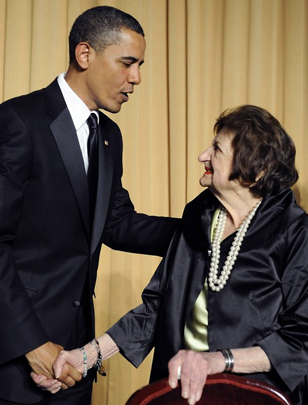The special Democratic Primary, scheduled for July 13, to choose a Democratic candidate for Ohio’s 3rd Congressional District, could provide a big break for Montgomery County Democrats.
The thirty days allotted for this Primary campaign provides a big opportunity to show democracy in action. It is a big opportunity to bring a whole new group of local Democrats into action within the local party. It is a great opportunity to set in place the ideas and infrastructure needed to mount a serious challenge to the Republican incumbent in the 3rd District, Mike Turner.
Montgomery County Democrats should think big and find ways to work cooperatively in these thirty days. I think it is a reasonable goal to set eight public meetings in various locations within the district. The point of the meetings would be to communicate what I wrote two years ago — Mike Turner Is A Bum, For Our Democracy’s Sake, Let’s Throw The Bum Out — and, in addition, the point of the meetings would be to provide an opportunity for Democratic candidates to make the case of how, by what method, they would make a better representative than the current office holder.
The fact is, Mike Turner would be turned out from Congress — if our democracy had any guts. Congress, after all, has a very low approval by the public. Thoroughly partisan, Turner is a big part of the problem in Congress that people seek to change. He stays in office, because ours is a weak democracy.
The key issue of our day, I feel, is the incompetence of our democracy to actually solve problems. As a nation, we are challenged to find our way to a great future and we do not have a government that seems to find its way. We have no leadership and we have no system that seems to be providing leadership.
People want to see democracy in action and are sick of political machines and political bosses exerting control. Democracy is the issue and this special Democratic Primary is a big opportunity to bring people into the local Democratic Party, a big opportunity to energize Democrats — via a display of active democracy.
It is active democracy, I feel, that could get citizens to drop their apathy and become energized. It is my belief that the Montgomery County Democratic Party should be all about active democracy that pushed me to speak out at the recent Montgomery County Democratic Party Reorganization Meeting. See: Proposal To Stop Democratic Primary Endorsements in Montgomery County Quashed At Reorganization Meeting.
I was disappointed that Dr. Mark MacNealy, after receiving the Democratic nomination in the May 4 primary, could not complete the race for Ohio’s 3rd Congressional District. I felt he would have made an excellent congressman. The advice I gave to him, as to how he could defeat Congressman Turner, I believe applies to any possible Democratic candidate: To Defeat Congressman Turner, Dr. MacNealy Must Emphasize His Commitment To Democracy
A commitment to democracy can be given a compelling credibility by the way candidates and the local Democratic Party use this Special Primary opportunity.
Because Dr. Mark withdrew, a special Democratic Primary to choose a candidate has been scheduled for July 13. This Thursday, June 10, at 4:00 PM is the deadline for any potential candidate to file his or her petition. To get on the ballot a candidate must file a petition with 50 verified signatures and must pay a fee of $85.
As of today, four Democrats have taken out petitions. But, so far, only David Esrati of 113 Bonner St, 45410, has actually filed. The other three 3rd Congressional District Democrats who have taken out petitions, but who, so far, have not filed, are:
- Guy Fogle, 10484 South Union Rd., Dayton, 45342;
- C. Roger Gollihugh, 4 Gunnington Ct., Springboro, 45016
- Joe Roberts, 308 E. Dorothy Lane, Dayton, 45419
























